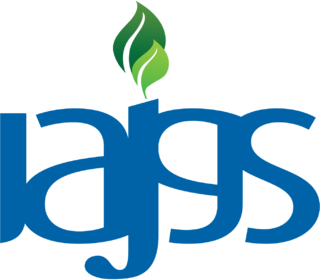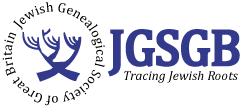Career
Computer career
Mokotoff joined the IBM Applied Programming Department in 1959, working on developing systems software for the yet-to-be-announced IBM 1401. [10] He is the author of SPS-1, SPS-2 IBM 1401 Symbolic Programming System, coauthor of 1401 Autocoder and participated in the 1401 Fortran II compiler project. [11]
In 1965, Mokotoff was drafted into the U.S. Army and spent his entire two-year career in the data processing department at Fort Dix Army Air Base in Fort Dix, New Jersey. He led the team that installed the first computer at Fort Dix (an IBM 1401). For his efforts, he received a Certificate of Achievement from the Commanding General of the base. When he left the Army, he had achieved the rank of Specialist Fifth Class. In 1967, he returned to IBM.[ citation needed ]
In 1968, Mokotoff left IBM to form his own software company with partner Stanley F. Smillie. The company catered primarily to the retail industry. In the 1980s, the company, Data Universal Corp, developed a software system called Riva which it installed in early computer systems at such national retail chains as The Children's Place, Linens N Things and Bed, Bath & Beyond. [12]
In 1985, he assisted the American Gathering of Jewish Holocaust Survivors and their Descendants to computerize the National Registry of Jewish Holocaust Survivors. This database is now located at the United States Holocaust Memorial Museum.[ citation needed ]
Genealogy career
The Forward calls Mokotoff an "all-around makher (Yiddish for mover and shaker) in the Jewish genealogical world." [13] Mokotoff became involved in genealogy in 1979 to prove, successfully, that all persons named Mokotoff/Mokotov/Mokotow have a common ancestor. [1] [14] [15] In 1980, he joined the Jewish Genealogical Society Inc (New York) and the following year became a member of its board of directors. During his tenure on the board, he used his computer background to develop some of the earliest databases for Jewish genealogy including the Jewish Genealogical Family Finder (now called JewishGen Family Finder), a database used by more than 100,000 Jewish genealogists. [16]
Recognizing that there were many spelling variants of Eastern European Jewish surnames, even though they sounded similar, Mokotoff collaborated with Randy Daitch to create the Daitch–Mokotoff Soundex, system which provides a phonetic alternative to searching databases of names. [6]
In 1984, Mokotoff and Sallyann Amdur Sack formed a company, Avotaynu, Inc, which publishes Avotaynu Magazine. [17] [13] This journal has been published quarterly since 1985. In 1991, the company expanded its effort into book publishing with Where We Once Walked: A Guide to the Jewish Communities Destroyed in the Holocaust, a gazetteer which lists more than 23,000 towns in Central and Eastern Europe with large Jewish communities prior to the Holocaust. Originally published in 1991, with a revised edition in 2002, Judaica Librarianship calls Where Once We Walked, "the de facto print gazetteer of the shtetlekh of the Pale of Settlement." [18] The book won the 1991 "Best Reference Book Award" of the Association of Jewish Libraries. [19] Since then, Avotaynu has published more than 70 books, five of which have won awards. In 2003, the Association of Jewish Libraries gave Avotaynu Inc its "Body of Work Award." [20] This award has been given only five times in the past 20 years.[ citation needed ]
In 1987, at the request of Rabbi Malcolm H. Stern and Sallyann Amdur Sack, Mokotoff founded the International Association of Jewish Genealogical Societies, the international organization of Jewish genealogical societies all over the world.[ citation needed ]
In 1990, Mokotoff became a member of the board of directors of the Federation of Genealogical Societies (FGS). He served on the board, with some interruption, for 15 years. In 2002, he served four years on the Board of the Association of Professional Genealogists.[ citation needed ]
In 2001, Mokotoff created the weekly e-zine of Jewish genealogy, called Nu? What’s New?[ citation needed ]










